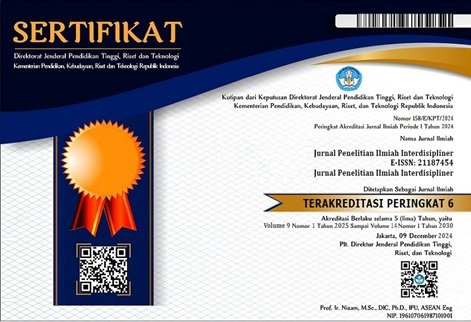MENGIDENTIFIKASI PERAN PEKERJA SOSIAL DALAM MEMBERDAYAKAN KLIEN: STUDI KASUS DI LEMBAGA REHABILITASI NARKOBA IPWL NAZAR FOUNDATION
Kata Kunci:
Pekerja Sosial, Rehabilitasi Narkoba, Konseling, Tahapan Rehabilitasi, KlienAbstrak
Penelitian ini bertujuan untuk mengobservasi proses rehabilitasi pecandu narkoba di salah satu pusat rehabilitasi di Kota medan. Fokus utama penelitian adalah untuk mengetahui metode yang di gunakan oleh pekerja sosial kepada kliennya selama menjalani program rehabilitasi, serta mengevaluasi efektivitas pendekatan intervensi yang digunakan. Metode yang digunakan dalam penelitian ini adalah metode kualitatif. Peneliti melakukan observasi langsung, di lingkungan pusat rehabilitasi. Metode yang digunakan adalah observasi partisipatif dan non-partisipatif, didukung oleh wawancara mendalam dengan konselor. Hasil observasi menunjukkan bahwa keberhasilan program sangat dipengaruhi oleh keterlibatan keluarga, kedisiplinan, dan pendekatan terapi yang holistik seperti terapi kelompok, konseling individu, serta kegiatan spiritual. Selain itu, kedisiplinan dan kepatuhan terhadap aturan-aturan yang berlaku di dalam program juga menjadi faktor kunci dalam proses pemulihan. Meskipun demikian, terdapat beberapa tantangan, seperti relapse (kekambuhan) yang masih terjadi setelah keluar dari program. . Ini biasanya terjadi karena lingkungan tempat tinggal yang kurang mendukung, ketiadaan pekerjaan, dan tidak adanya sistem pendampingan setelah program selesai. Selain itu, pusat rehabilitasi juga menghadapi keterbatasan dari sisi fasilitas dan tenaga kerja. Jumlah pekerja sosial yang ada tidak sebanding dengan jumlah klien yang harus ditangani, sehingga proses pendampingan kadang tidak maksimal.
This study aims to observe the rehabilitation process of drug addicts at a rehabilitation center in Medan City. The main focus of the research is to identify the methods used by social workers in assisting their clients during the rehabilitation program and to evaluate the effectiveness of the intervention approaches implemented. This research utilizes a qualitative method. The researcher conducted direct observation within the rehabilitation center environment. Both participatory and non-participatory observation methods were employed, supported by in-depth interviews with counselors. The results of the observation indicate that the success of the program is significantly influenced by family involvement, discipline, and a holistic therapeutic approach such as group therapy, individual counseling, and spiritual activities. In addition, compliance with the rules and regulations within the program also plays a key role in the recovery process. However, several challenges were identified, including relapse after completing the program. This often occurs due to unsupportive living environments, unemployment, and the absence of a post-program support system. Furthermore, the rehabilitation center faces limitations in terms of facilities and human resources. The number of available social workers is not proportional to the number of clients, resulting in less optimal support and assistance during the rehabilitation process.





